The Black Crowes' Rich Robinson names 11 guitarists who shaped his sound
The seasoned tonesmith reflects on spending "some of the best moments of my life" with Jimmy Page, the guitarist with a tone so unbelievable that "no-one on this Earth can touch him" and why Duane Allman is just as important as Jimi Hendrix
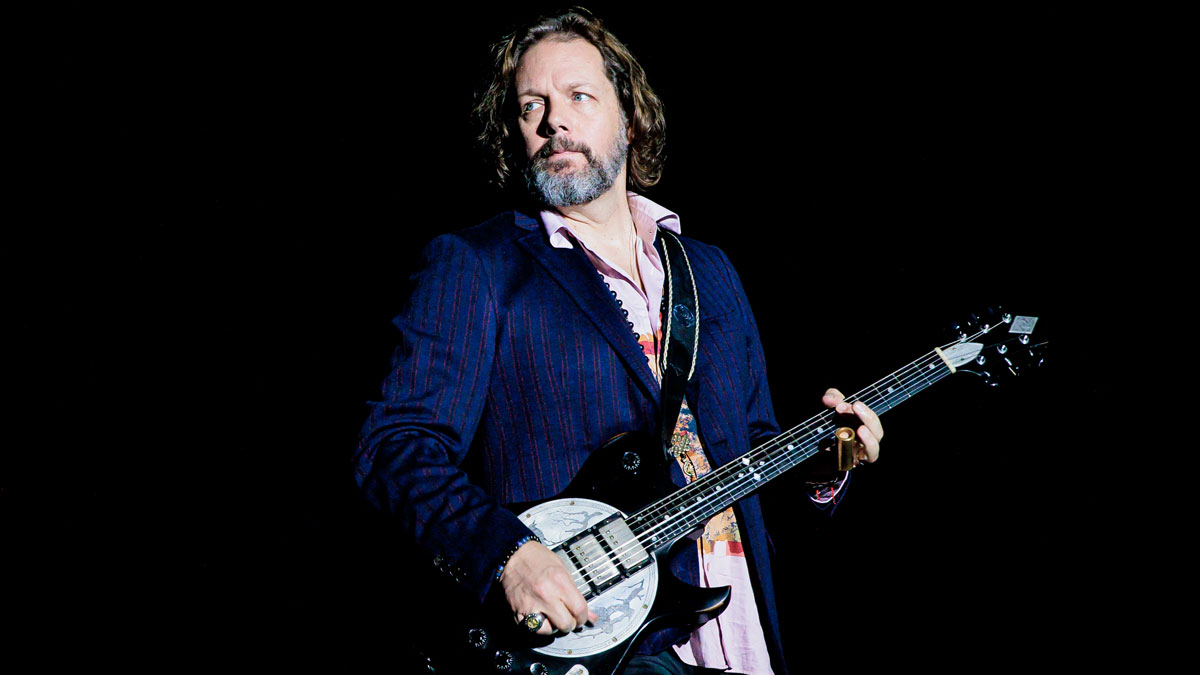
Rich Robinson cherishes tonality. That much is certain. One listen to any of the Black Crowes' records will tell you that.
There's also the matter of Robinson's mouthwatering collection of vintage guitars and amps. Indeed, the veteran rocker has curios to inspire bewildered wonderment for days and vintage amps that would delight even the most stony-faced of tube lovers.
"Feeling and tone are huge," Robinson tells us. "I've always cared about tone; you know what I mean? It's always been essential to me. And so, I've always consistently gone to great lengths to improve that side of my playing. I'll sprinkle in different amps, and different guitars, all to find that magic sound. Because you can have all the extra shit you want, but 98 percent of it comes from the guitar and the amp."
Those tone-chasing ways are, in part, why Robinson founded his own amp company, Muswell Amplification.
"Yeah, that's really it," he says. "But it stems from when I picked up a '66 and '68 Marshall Bluesbreaker, which are monster fucking amps. I love amps like that because they inspire me to play and bring out so much creativity. If things sound shitty or weak, it makes me want to bail, and it doesn't make me want to play guitar or write music."
"That experience inspired me to look into making my own amps," Robinson continues. "I wanted to ensure I always had a good, vintage-sounding tube amp around, so I made my own with my guitar tech, Roland [McKay]. We sourced vintage tubes, transformers, and capacitors and went out and found the most beautiful birch wood to make the cabinets, along with Celestion speakers.
"And I have to say, they sound incredible. I've had them out on tour with me, and I'll bring them out when we hit the road with Aerosmith, too."
Get The Pick Newsletter
All the latest guitar news, interviews, lessons, reviews, deals and more, direct to your inbox!
Now 33 years after the release of the Black Crowes' debut record, Rich Robinson's commitment to guitar mastery via analog means is unrelenting. That purely instinctual approach to solos, slides, riffs, progressions, and rhythms is unique to Robinson.
Guitar in hand, Rich Robinson conjures ghosts of rock 'n' roll's past while dutifully pushing the genre forward. And while some choose a road paved with pedals, tricks, and gimmicks, after all these years of quiet service, Robinson has learned that keeping things simple and focusing on tone is the linchpin of his success.
"I look at the guitar in terms of response and physics," Robinson explains. "The truth is that everyone room I'm playing in will sound different, right? And, yeah, digital amps can account for that, but I don't care; there's something amazing about analog stuff. I get a feeling from the sound of my old amps that I'll never find digitally. When I'm on stage, I feel the vibration and the tone to the point that I truly become one with whatever I play."
When asked if his new line of Muswell amps – or his reliable oldies but goodies – have inspired him to get the Black Crowes back in the studio, Robinson says: "Of course, we're heading into the studio in just a few weeks before we go on tour with Aerosmith. I'll be using my Muswell stuff, along with the old Marshall amps, for sure. I'll be leaning hard on the '68, as it's my favorite of the old Bluesbreakers I have. But I'll bring them all in, see what works best, and use those. And I'll also take them out on tour with Aerosmith later this year."
"There's no point in having these things if I'm not gonna use them," Robinson insists. "If I’m playing with this stuff, it's just so inspirational, and that same feeling can be translated when I'm on the stage, too. That's why I've spent so much time, energy, and money chasing this stuff; I believe it's an integral part of the Black Crowes' sound. Beyond that, it's an integral part of my sound, you know? So, it's what I always shoot for and what I believe matters most."
As the Black Crowes prepare to hit the road supporting Aerosmith on their final tour, Rich Robinson dialed in with Guitar World to dig into the 11 guitarists who shaped his sound.
1. Stephen Stills

"Some of my earliest memories date to when I was three or four years old and being with my dad while he listened to music via his console stereo. It was this big piece of furniture, and when you opened it up, there were speakers and a turntable built in. And I remember listening to his go-to records like Sly and the Family Stone, Crosby, Stills, Nash & Young, the Beatles, and The Who. But for some reason, the CSNY stuff resonated with me, and Stephen Stills has been a favorite ever since. His playing always added to the song's emotional message and really delivered the feeling.
"So, I picked up on that early on. And to this day, he's one of my favorite players, both acoustically and electrically. The way he approached songwriting was incredible, and his voice was unbelievable, but his guitar playing was amazing, too. Of course, I didn't understand that when I was three or four, but I delved deep into what he was doing as I grew older. Man… his acoustic sound, his picking, and how he played were all brilliant. His playing moves me to this day."
2. Angus and Malcolm Young
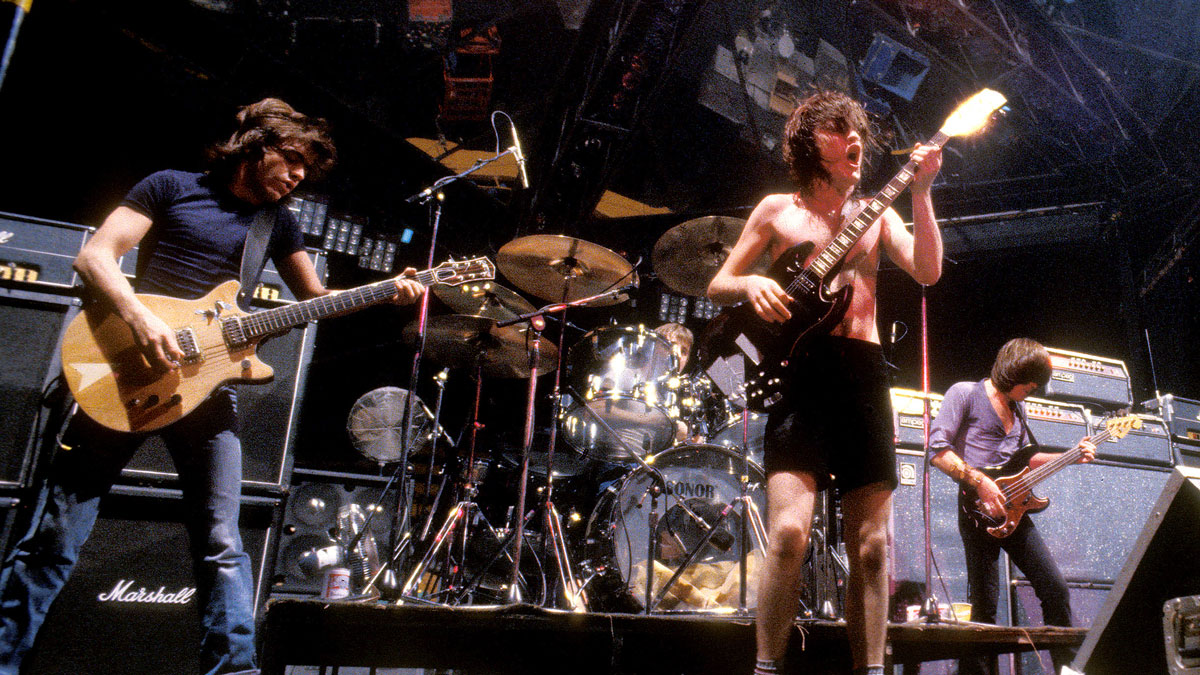
"As you get older, you start to develop tastes that are all your own and not influenced by other people. And I remember getting into AC/DC early on, which hooked me on Angus and Malcolm Young. I mean… shit, how can you choose one over the other. They're both equally brilliant and complimented each other perfectly sonically. Once that clicked, I thought, 'Fuck me, man, this is the shit.' The way their guitars were recorded, and the sounds coming off them still equals one of the best tones ever.
"When Angus and Malcolm would play together, they sounded so powerful but not overdriven. They're like the quintessential sound of rock 'n' roll. It's just straight-ahead, organic playing, and so warm-sounding. Angus's leads were loud but never felt harsh or overprocessed, and Malcolm's rhythms were like no other.
"So, they've always influenced me, and the interplay between Malcolm and Angus is nothing short of a gift. There's no other way to describe it other than a gift. Those two made up one of the most unbelievable duos in rock history."
3. Peter Buck
"Eventually, I got into my angry punk rock phase in my early adolescence, which led me down all sorts of roads. And growing up in Georgia, eventually, I came upon the alternative rock that was popular then. While the punk phase didn't last long, the energy of it stuck with me, and I developed a deep love for The Clash, The Cramps, The Damned, and the Sex Pistols, but I also fell in love with The Smiths, The Cure, The Jam, and R.E.M. In particular, I fell in love with Peter Buck.
"To this day, Peter Buck is one of my influences. He's just a straight-up phenomenal and exciting guitar player. But then again, everyone in R.E.M. was incredible, which only made me love them more.
"I still remember the first time I heard Radio Free Europe and being blown away by his picking and this sound that he had that I couldn't put my finger on. His sound was very Southern but also gentle, beautiful, and unique. And I liked that it was Southern music, but it wasn't like what people usually associated with the South at that time.
"That whole place is like a paradox; there's a lot of beauty, horror, and many ups and downs. There's no escaping that. But there's this version of the South that R.E.M. captured, and I gravitated toward it immediately."
4. Nick Drake
"Like Peter Buck, I vividly remember the first time I heard Nick Drake. A friend of mine gave me this compilation of Nick Drake's stuff called Time of No Reply, and the first song I heard was called Fly. It was the most beautiful and haunting thing I'd ever heard, and it stuck with me for days.
"His playing, the tonality of his voice, and his phrasing were all like nothing I'd ever heard. And the way he put them all together was miraculous to me. It was almost like a religious experience. It was so together and beautiful, and it felt like it all melded together as one.
"Nick Drake's whole package fits perfectly within the bubble of what that song was. It's still hard to imagine how anyone could play and sing like that, but Nick Drake somehow did."
5. Clarence White
"Going back to some of the music my parents listened to in the '60s and '70s, I have to include the Byrds. I loved their music, and as far as guitar goes, Clarence White is one of those guys who had a thing that was all his own.
"The guy was just so unbelievable. And to be like, 'Oh, I wish I could make sounds like this,' and then go out and invent a new apparatus for a guitar so he could do that was nuts. I mean… how unbelievable is that?
"That aside, his delivery, his tone, and the way he was able to incorporate this new invention [B-Bender] and basically write a whole new way of playing guitar, to me, is fucking phenomenal."
6. Keith Richards
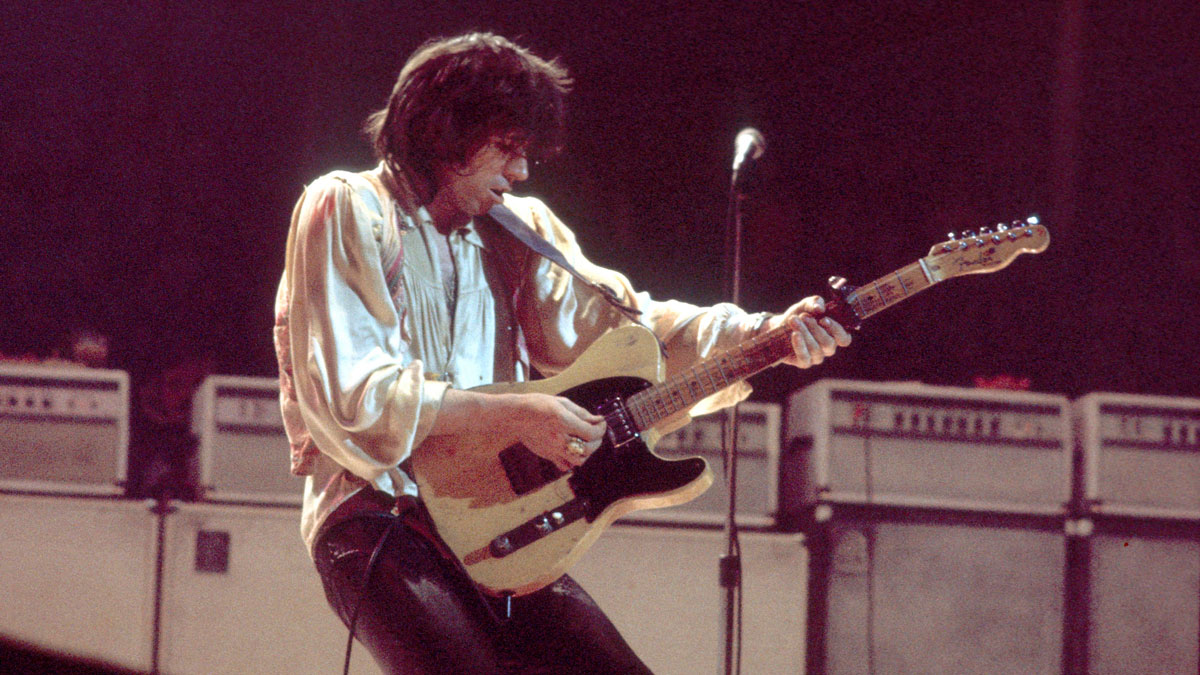
"When I entered the Keith realm and started trying to figure it all out, I quickly realized it was like a jigsaw puzzle. That journey got me deeper into the whole vibe of the Rolling Stones, which is magnificent, man. And I remember being maybe 15 or 16 years old and being on a long drive up the East Coast to New York while listening to a cassette of Beggars Banquet. I kept listening to the whole thing over and over, and the sounds that Keith was able to get were high-pitched, almost like a wind instrument over the acoustic guitar.
"The way that Keith was strumming and how that shit was just hanging over the whole thing created this melancholy but beautiful vibe and feeling. And then the unique way that Keith was strumming… I fucking love his acoustic playing. I mean, obviously, Keith is a brilliant guitar player, but to hear him play acoustic is a special thing. The way that he strummed was unique, percussive, and so far out. But then his tone is unbelievable. It's so incredible that, honestly, no-one on this Earth can touch him."
7. Mick Taylor
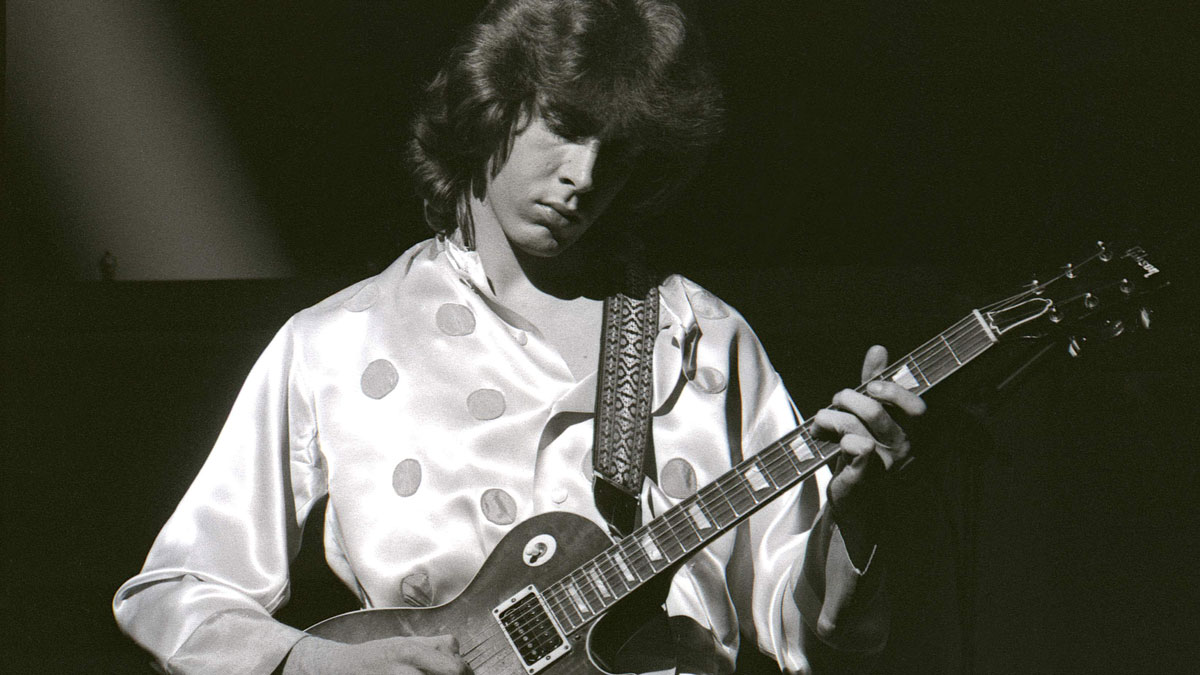
"From there, the Keith thing carried me into Mick Taylor. Not unlike Malcolm and Angus, Keith and Mick formed an insane guitar duo. And people can say what they will about whatever portion of the Stones catalog they like, but those albums with Mick Taylor are unreal.
"What those two fucking dudes were able to do when they played together… that's the gold standard of how two guitar players should play together. Keith and Mick Taylor playing together was truly something astonishing. It was so fluid and instant, and they were both so present. They were both there, and their playing was just so apparent.
"I loved how Mick's approach complemented things because he's often thought of as a blues guitar player and gets boxed in there. But with the Stones, his pacing and virtuosity bred such beauty that doesn't necessarily exist in the blues. There was so much yearning but also a harshness that was addicting to listen to. It was hard and heavy but also deeply emotional. I don't know how else to describe the sound of Mick Taylor. His approach was fluid and beautiful, so it perfectly synced with Keith's."
8. Jimi Hendrix
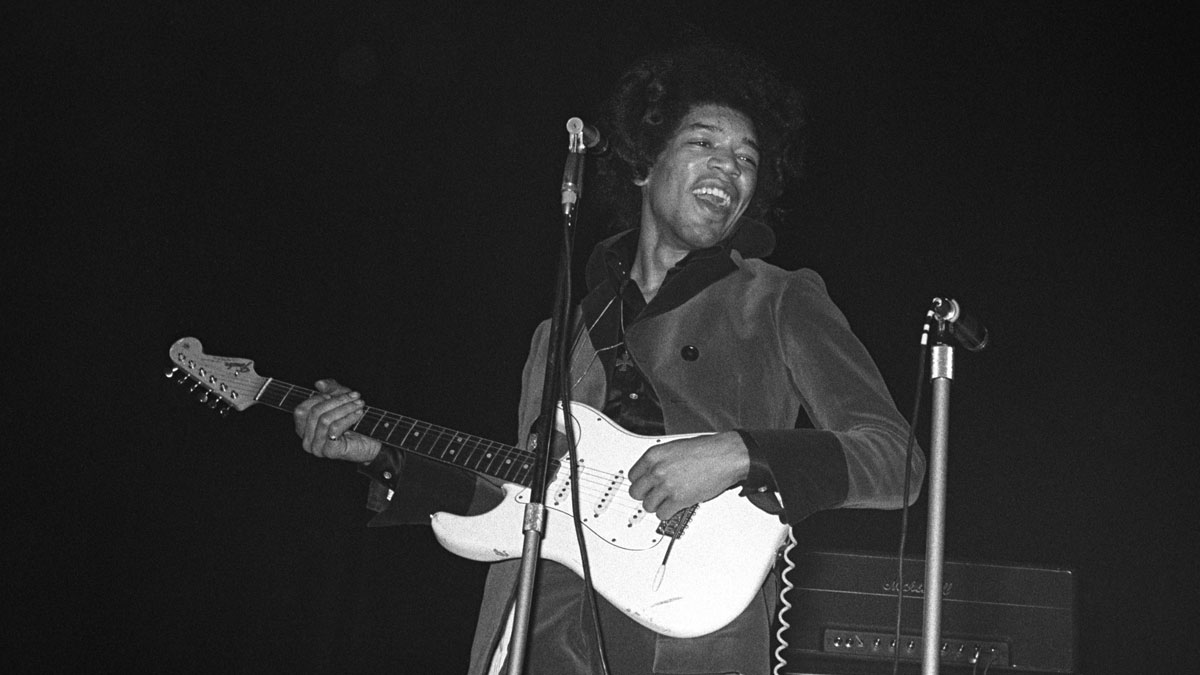
"Like many people, my mind was blown when I first heard Jimi Hendrix. His solos were so amazing, but the chord structures, and he would write, and how he would play those chords were seriously fucking deep, in my opinion. He took typical chords, and someone added structure that made them complicated and unique.
"The one thing that always struck me about Hendrix was that all his parts were so amazing, you know? It's like, who plays like that? I still remember hearing Are You Experienced and literally having my fucking mind blown. Everything about it was stunning, and it still is to this day. But I was in middle school when I first heard it, and as soon as I did, none of it ever left me. It just stayed with me."
9. Ronnie Wood
"Ronnie Wood is very underrated, especially when it comes to his compositional approach. How he played those songs and wrote them in the first place was really something else. He did things that were so interesting and wrote so many songs that are so memorable. Writing stuff like Gasoline Alley or Every Picture Tells a Story takes a lot of talent. We're talking about some of the most stunning rock songs ever, and Ronnie Wood was a huge part of them.
"Beyond the compositional side of his, his slide abilities and his overall sonic approach were just so good. But to me, Ronnie hasn't been able to shine in that same way with the Stones, which is a shame. Don't get me wrong, he does his thing, and it's amazing, but his shit with the Faces was on a whole other level. That was some seriously special shit. I wish he got to do more of that with the Stones."
10. Jimmy Page
"Jimmy meant as much to me as anyone, and maybe even more because I got to play with him on tour with the Crowes. I mean… to sit there and play with Jimmy Page was an experience I'll take with me forever. His compositional approach, acoustic playing, and rhythm playing were all on a plane he only existed in. And his solos are so tasteful and filled with these moments where he ebbs back and forth with these beautiful melodies. What can I say? He's fucking unbelievable. Jimmy is straight-up amazing.
"Anyone who calls him sloppy or whatever, fuck that. He's a God of guitar, which should be obvious. So, to get up there and play those Zeppelin songs with him and then to have him play my songs during those two summers that we toured with him, those are some of the best moments of my life.
"He's just one of those guys who can take apart those songs and inject this tone and feeling that you can't duplicate, no matter how hard you try. Having listened to and loved his music my whole life and then having played with him, I have absolute respect and reverence for Jimmy. When I look back on the entire thing, taking the stage with him was nothing short of a gift for me."
11. Duane Allman
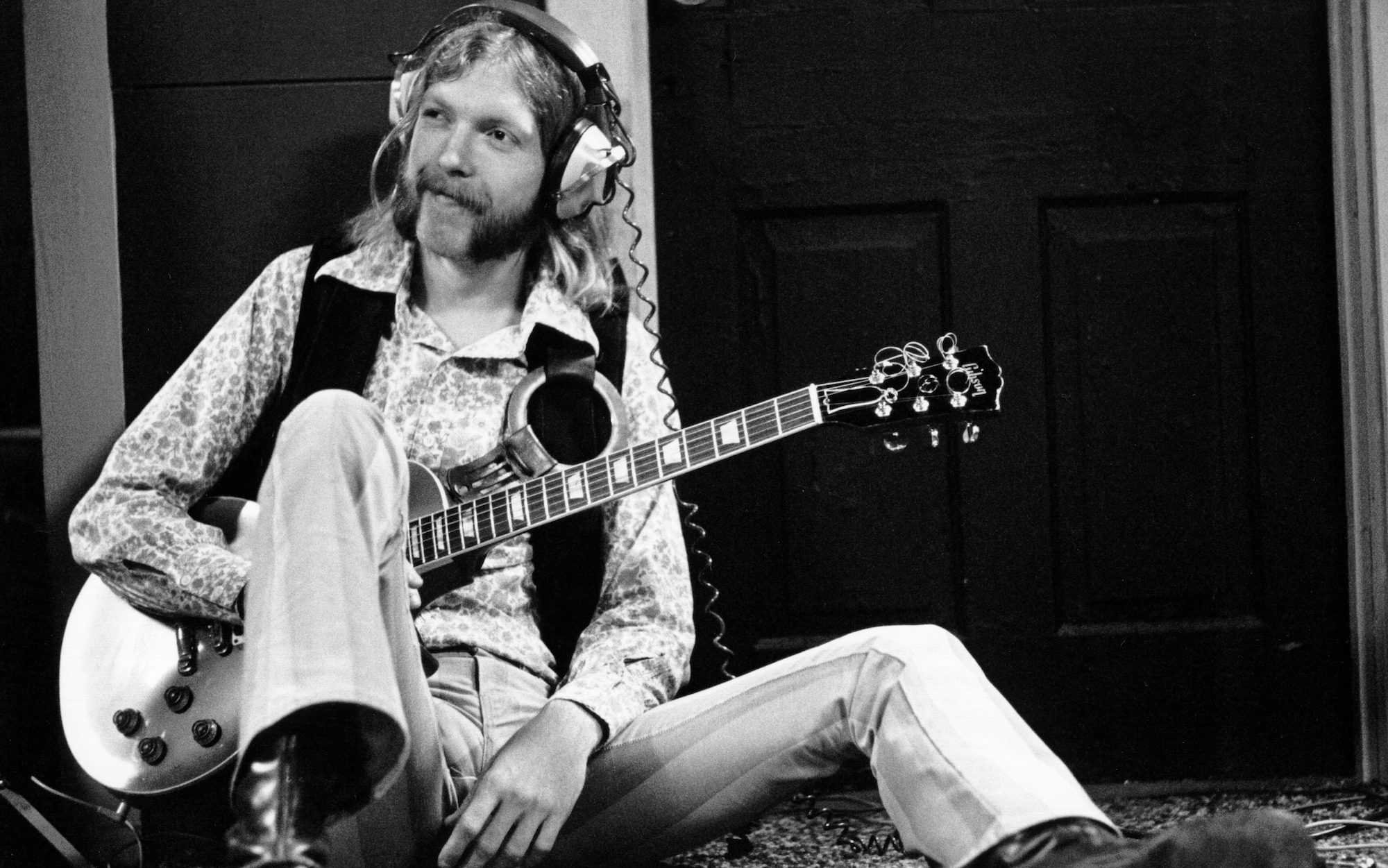
"The last guy I want to talk about is Duane Allman. He impacted me in a lot of ways, but his slide work is on the same level as anything Hendrix did for the guitar. He was just as influential as Jimi Hendrix, but he took the whole thing in a totally different direction. I've always thought you had music and the guitar before Hendrix and then music after. And in my opinion, because he was so far out there in how he played and thought, the same goes for Duane Allman.
"The feeling that comes from his guitar playing is utterly indescribable. To be able to deliver that in a way that was so musical and new was otherworldly. But what I maybe loved the most about Duane Allman was his versatility.
"To me, it was obvious that he loved the blues and dug B.B. King, but he took those influences and made them his own. And when he added the slide into the mix, it's like, 'Oh, shit, this is life-changing.' So, Duane Allman is another one of those guys that will all forever be one of the guys who laid it all out for those who came after."
- The Black Crowes tour the US with Aerosmith from September – see TheBlackCrowes.com for full dates.
Andrew Daly is an iced-coffee-addicted, oddball Telecaster-playing, alfredo pasta-loving journalist from Long Island, NY, who, in addition to being a contributing writer for Guitar World, scribes for Bass Player, Guitar Player, Guitarist, and MusicRadar. Andrew has interviewed favorites like Ace Frehley, Johnny Marr, Vito Bratta, Bruce Kulick, Joe Perry, Brad Whitford, Tom Morello, Rich Robinson, and Paul Stanley, while his all-time favorite (rhythm player), Keith Richards, continues to elude him.
“Every tour was the best I could have done. It was only after that I would listen to more Grateful Dead and realize I hadn’t come close”: John Mayer and Bob Weir reflect on 10 years of Dead & Company – and why the Sphere forced them to reassess everything
“Last time we were here, in ’89, we played with Slash on this stage. I don't remember what we did...” Slash makes surprise appearance at former Hanoi Rocks singer Michael Monroe's show at the Whisky a Go Go


![John Mayer and Bob Weir [left] of Dead & Company photographed against a grey background. Mayer wears a blue overshirt and has his signature Silver Sky on his shoulder. Weir wears grey and a bolo tie.](https://cdn.mos.cms.futurecdn.net/C6niSAybzVCHoYcpJ8ZZgE.jpg)

![A black-and-white action shot of Sergeant Thunderhoof perform live: [from left] Mark Sayer, Dan Flitcroft, Jim Camp and Josh Gallop](https://cdn.mos.cms.futurecdn.net/am3UhJbsxAE239XRRZ8zC8.jpg)






